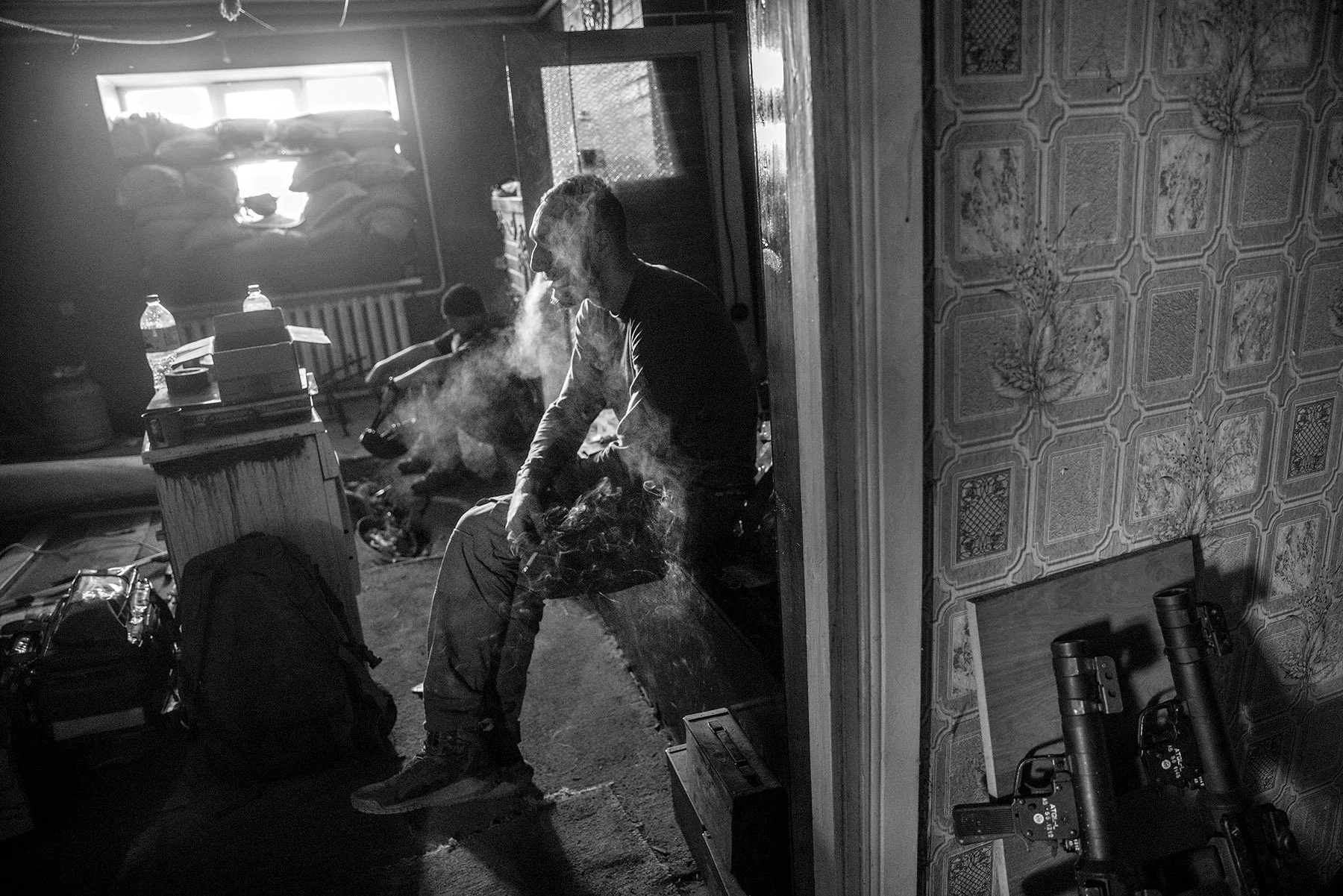They replied together. The M4 carbine, of course. The M9 pistol. Claymore mines. They’d both shot AKs in the mountains with Afghan border police, spraying and praying. The M500 shotgun, that was Lee’s favorite, no adornment to it, only power. Various light and heavy machine guns, the SAW, for sure, who didn’t cherish the SAW, both the M203 and M320 grenade launchers, though the latter was shit, they agreed, the side-loading mechanism didn’t work right, it’d been thrust upon them in theater because of big-money Pentagon contracts. The Mark 19, that was Pax’s jam, sit behind a belt-fed automatic grenade launcher and let the baby purr. They’d both trained on anti-tank platforms like the TOW and Javelin but hadn’t used them in the ‘Stan, there’d been no need. They’d fired 60 mike-mike mortars, 80 mike-mikes, too, and in Iraq, Lee had shot the Four-deuce into an abandoned chemical warehouse. The M107 sniper rifle, though neither had squeezed that particular trigger on an enemy profile, only paper silhouettes. They could call for artillery, still knew the 9-line Medevac, direct an attack helo onto target for a gun run. They were infantrymen, paratroopers at that. Weapons were their craft.
“And why are you here?” Bogdan continued, ripping away a bite of food with his teeth. He even eats like a bird, Pax thought. “By choice, you ask for the front. You seek the zero line. This is not normal behavior.”
Lee spoke first. “War turned my grandparents into refugees. If strangers with guns from the other side of the planet hadn’t come to Korea? Shit.” Then he sniffed and crossed his arms. “That’s what I told my ex-wife and kids. They need to believe I believe that. But maybe I just came here to shoot a Russian invader in the fucking face.” A dark relish clambered out of Lee, pervading the table, then the entire backroom. “So I can finally look at myself in the mirror and know, fucking know, that I’m the killer man.”
With that, Lee’s body relaxed, shuddering from the remnant energy. He took a drink of water and sat back in his chair. A weird answer, Pax thought, but an honest one.
One of the Ukrainian’s phones rumbled on the tabletop. He ignored it. The onus of explanation fell over Pax like a cold shadow.
“I came here,” he began, before stopping. Any response he could think of sounded off in his mind, hollow. Lee had told the truth. I should, too, he thought. He tried again. “Well, I came here to help.”
The table turned heavy with quiet. He could tell that what he’d said was wrong by the way Lee was looking at him, or not looking at him, more toward him and behind him and around him but not at him. He couldn’t understand, wanting to help is a good thing, he thought, it’s why their president has gone on television and asked the world for help, asked combat veterans who’d been in the suck to come and fight for them. And he had. Pax shifted toward Bogdan to say that, to ask who the hell was he to be defying his own president’s command, only to see that the Ukrainian wasn’t looking at him, either, but watching something under the table. He followed the other man’s craning to his own lap. He was thumbing the prayer beads wrapped around his wrist, not like the lady at the VA had shown him, but manically, hysterically, one-two-three one way, one-two-three-four the other, rinse and repeat, like he was tapping at a video game, like he wasn’t bona fide at all but a fraud, a bundle of nerves, a betrayer to the profession of arms itself.
The worst part was, he had no clue how long he’d been going on. Two pills, he thought again, two. You knew it and you still didn’t do it. He moved both hands under his thighs and searched for an excuse.
“Old tic,” he tried, which was true, in its way, and then Lee tried, as well, saying, “He’s high-speed, I’ll vouch for him, he more than holds his own when the bullets come,” but the legion man didn’t seem to hear them, instead pushing back his chair and standing with the aid of the table. On the side of his pistol, the right side, he raised his pants to the knee to show his leg, a long metal prosthetic about the width of a broom handle. He knocked against it, twice, as if he was on a neighbor’s porch. It pinged low in response. He raised the other pant leg to reveal a second, matching prosthetic. It echoed the same way. Then he returned the bottoms of his pants to position and plucked at a white strand his beard.
“I’ve been surprised how many arrivals are willing to fight and kill for my country,” Bogdan said, “yet have no idea the war has been going on for eight years. Eight years in the Donbas. That’s where a landmine got my legs. And I am blessed.
“In old Slavic, Ukraine translates to ‘the borderlands.’ I tell all my foreigners this because it is important to know the orc mindset. They do not believe we deserve existence, except to provide for them. We are the wheat people who live in the fields beyond, Banderites and dills too simple to appreciate the wonders of the revolution. This isn’t like the little American wars you fought in, and I don’t mean offense. But those were wars of choice, and you left those countries when the battles ran their course. Here, it’s victory or death. We win, or we see Lviv and every other city turned to hell rubble like Mariupol.” Bogdan resumed his seat at the table. “What kind of choice is that?”









